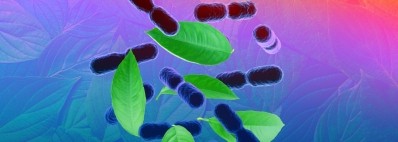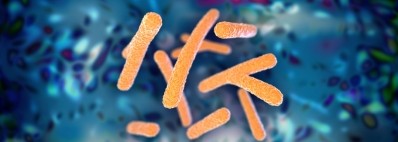Promotional Features
Allergen-free herbal blend demonstrates reduction in acne, clinical study shows
Acne vulgaris is a chronic inflammatory skin condition and a growing concern worldwide.
It’s the eighth most prevalent disease worldwide and is caused by a pilosebaceous gland disorder common at puberty and also existent at adulthood. Globally, there are 117.4 million incident cases of acne vulgaris, with a 48% increase during the past three decades.1 Acne vulgaris generally manifests as inflammatory and non-inflammatory lesions primarily on the face, upper arms, legs, and back.
In some cases, post-healing scars develop in the form of skin depressions, hypertrophic, or keloidal scars. The onset of acne is often linked with pubertal hormonal changes. It can cause considerable distress by negatively affecting Quality of Life (QoL), therefore increasing the risk of mental health conditions such as anxiety, depression, and suicidal ideation.
Treatments, such as the anti-seborrheic medications, anti-androgen medications, and hormonal therapy, do exist. However, these avenues promote side effects such as irritant dermatitis, skin dryness, redness, peeling, increased sensitivity to the sun, and often require additional antibiotics. Furthermore, certain components of the medications, such as the isotretinoin, can cause developmental abnormalities in the fetus if used during pregnancy.2
The increasing number of acne vulgaris cases, along with the complications associated with conventional medicine, underscore the growing consumer demand for natural, safe, and effective treatments.
Vidya Herbs, a leading global provider of herbal extracts, has verified a safe, allergen-free, herbal treatment during a human clinical trial. The unique herbal formulation, Kūlaris™, is a blend of Amorphophallus konjac and Commiphora wightii (guggul) extracts.
Ceramides are generally obtained from wheat and soy, and numerous skincare products predominantly contain major allergens.3 However, the ceramides found in Kūlaris™ are a pure source of gluten-free glucosylceramides extracted from konjac potato which provides a hearty composition of glycosyl ceramides.4
Ceramides are sphingolipids that are quintessential for healthy skin and prevent a permeable barrier. Decreased ceramide skin levels can result in skin dryness and the occurrence of wrinkles. In a previous study, Vidya Herbs demonstrated the effectiveness of oral konjac extract in decreasing skin dryness, hyperpigmentation, redness, itching, and oiliness without any adverse effects.4
While the konjac potato-derived ceramides promote healthy skin conditions in an allergen-free format, Guggul, a gum resin, is the therapeutic agent in Kūlaris™ that addresses acne vulgaris. Guggul has been shown as effective when used as a topical or oral alternative medicine for acne.5
From this, Vidya Herbs therefore identified a high probability that a synergistic blend of the two potent extracts would prove highly effective in reducing the effects of acne vulgaris while avoiding common allergic reactions such as gluten intolerance.
Clinical study
Vidya Herbs recently conducted a double-blind, randomized, placebo controlled, parallel group clinical trial evaluating the effectiveness and safety of Kūlaris™ on mild to severe acne vulgaris and overall skin health. Adult male and female test group subjects received 300mg/day of Kūlaris™ orally as a capsule over a period of 12 weeks (Figure 1), while the control group received an equivalent placebo.
Acne severity assessment included lesion count, investigator’s global assessment, and photographic documentation of lesion areas, as well as Cardiff Acne Disability Index (CADI), Other Scales and Patient Satisfaction Questionnaires, and Investigator Global Assessment Scale (IGA) assessment scores. Established scales and questionnaires were used to assess the effect of the treatment arm in comparison with the placebo. Vidya Herbs used the Allergan Fine Line Scale, Allergan Skin Roughness Scale, and the Felix Von Lushan Skin Color Chart.
Figure 1. Schematics of Study Design
Results
The efficacy of Kūlaris™ was primarily evaluated by analyzing the mean change in the inflammatory and non-inflammatory lesion count, and the established questionnaires were taken into consideration. The proportion of subjects in each treatment group achieving ‘success’ at week 12 was assessed by using repeated measures analysis of variance (ANOVA).
In the Kūlaris™ arm, 26.2% of the subjects achieved ‘success’ by week 12. A statistically significant difference (p<0.0001) was observed between the Kūlaris™ and placebo groups.
Mean change in inflammatory lesion count: Baseline to week 12
In the Kūlaris™ group, a nearly 71% reduction in the mean inflammatory lesions from the baseline to the final visit at week 12 was observed. There was a significant change (p<0.0001) in inflammatory lesion count from baseline to the end of study visit in the Kūlaris™ group compared to the placebo group (Figure 2).
Figure 2: Mean change in the inflammatory lesion count
Mean change in non-inflammatory lesion count: Baseline to week 12
The Kūlaris™ group exhibited about 67% reduction in the mean non-inflammatory lesion count from the baseline visit to visit three. There was a significant change (p<0.0001) in the non-inflammatory lesion count from the baseline to the end of study visit between the Kūlaris™ group and the placebo group (Figure 3).
Figure 3: Mean change in the non-inflammatory lesion count
Mean change in total acne / lesion count: Baseline to week 12
The mean total acne / lesion count in Kūlaris™ demonstrated around 68% reduction from the baseline visit to visit three (Day 84 ± 2). There was a significant change (p<0.0001) in the total acne / lesion count from the baseline to the end of study visit in the Kūlaris™ group compared to the placebo group (Figure 4).
Figure 4: Mean change in the total acne / lesion count
Overall, the proportion of subjects showing ‘success’ on the IGA scale was significantly higher (p˂0.0001) in the Kūlaris™ group as compared to the placebo group. Mean values of the CADI score for QoL were found to be significantly reduced (p˂0.0001) in the Kūlaris™ group as compared to the placebo group. A higher score indicates a lower QoL. A reduction in the mean values of the Allergan Fine Line Scale, Allergan Skin Roughness Scale, and Felix Von Lushan Skin Color Chart was observed by the end of the study.
A reduction in the mean Skin Hydration Scale score from the baseline to week 12 was observed in the Kūlaris™ arm. A lower score indicates less dryness and associated discomfort. Concurrent results were obtained for the other parameters between the two groups over a period of 12 weeks. The change in laboratory parameters such as hematology and biochemistry was assessed at week 12 and exhibited no significant change.
A safe, effective, allergen-free solution
While there are unfavorable side effects associated with many conventional acne vulgaris treatments, Vidya Herbs’ human clinical research indicates that Kūlaris™ is a natural, safe, effective, and allergen-free solution. The allergen-free ceramides derived from the Konjac extract promote healthy skin conditions while the Guggul extract addresses acne vulgaris directly.
Clinical research demonstrates a considerable reduction in total acne, inflammatory, and non-inflammatory lesion count, and QoL scores while no side effects were observed. A dose of 300mg of Kūlaris™ was administered daily, which is roughly 100mg/day less than many ceramide therapies.
Kūlaris™ is a unique konjac potato and guggul extract composition offering a gluten-free, wheat-free acne solution to a market in search of a natural, alternative treatment. This promising solution has the potential to enhance the physical and mental wellbeing of those seeking relief from acne vulgaris.
These statements have not been evaluated by the Food and Drug Administration. This product is not intended to diagnose, treat, cure, or prevent any disease. Claims should be reviewed under the guidance of regulatory and/or legal counsel for compliance.References
1. Chen, H.; Zhang, T. C.; Yin, X. L.; et al. (2022). Magnitude and temporal trend of acne vulgaris burden in 204 countries and territories from 1990 to 2019: an analysis from the Global Burden of Disease Study 2019. The British journal of dermatology, 186(4), 673–683.
2. Choi, J. S.; Koren, G.; & Nulman, I. (2013). Pregnancy and isotretinoin therapy. CMAJ : Canadian Medical Association journal = journal de l'Association medicale canadienne, 185(5), 411–413.
3. Spada, F.; Barnes, T. M.; & Greive, K. A. (2018). Skin hydration is significantly increased by a cream formulated to mimic the skin's own natural moisturizing systems. Clinical, cosmetic and investigational dermatology, 11, 491–497.
4. Heggar Venkataramana, S.; Puttaswamy, N.; & Kodimule, S.; (2020). Potential benefits of oral administration of AMORPHOPHALLUS KONJAC glycosylceramides on skin health – a randomized clinical study.BMC Complement Med Ther 20, 26.
5. Kunnumakkara, A. B.; Banik, K.; Bordoloi, D.; et al. (2018). Googling the Guggul (Commiphora and Boswellia) for Prevention of Chronic Diseases. Frontiers in pharmacology, 9, 686.








